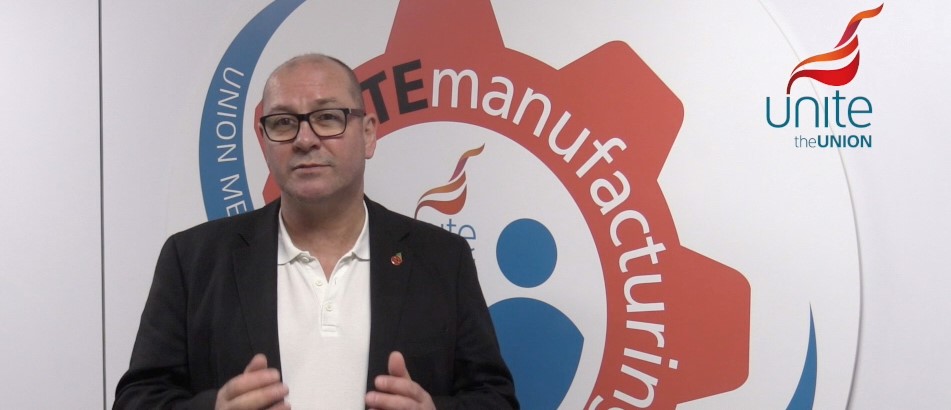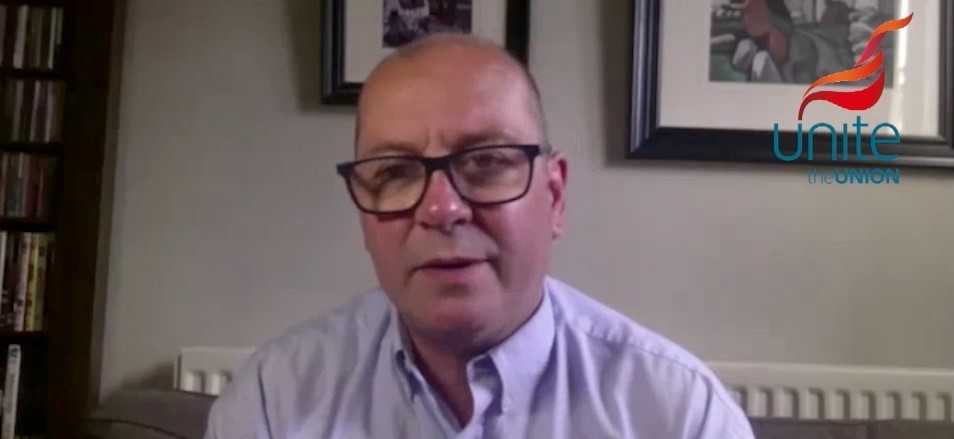Celebrating decent jobs
So much focus has been on bad jobs and bad employers recently like Sports Direct, with their shameful warehouse working conditions and zero hours contracts that rob people of any quality family life.
But this Friday (October 7) marks World Day for Decent Work. A day where we celebrate all the decent jobs that exist.
Since 2008 the International Trade Union confederation (ITUC) has been organising the World Day for Decent Work (WDDW).
“Unite is proud to be supporting World Day for Decent Work this year,” said Steve Turner, Unite assistant general secretary.
“Too often the focus is on all the bad employers and what is missing from their workers’ jobs, like guaranteed hours every week, training opportunities and good pay that we can forget to highlight the good jobs and how we can make all jobs into good jobs,” added Steve.
Unite’s Fightfor5 campaign is aimed at winning decent work for all. But what makes a job a decent job? I spoke to Paul Robinson, who works for Essar oil UK, formerly Shell oil, who told me what he thinks makes his job decent.
“The reality is that the main reason people come to work is to get paid,” he said. “And the pay here is top of the table for the area,” he added.
Pay isn’t what makes the job great though as Paul, who has worked at the Ellesmere Port plant for 38 years, went on to explain. “Retention here is very high because people are happy,” he said.
The employer is very flexible with staff either on day worker contracts, which are 08.00 until 16.00 or shift worker contracts, which are two 12 hour days followed by two 12 hour nights and then six days off.
The pay for both types of contract is similar, with the shift workers getting an extra shift allowance.
“If you have a young family the shift work allows you to split childcare or the day contract means you’re there for dinner and bedtime,” explained Paul.
Paul worked as a plant operator before becoming a full time convenor. He is now responsible for Unite’s 600 members at the plant.
“One of the best things about the plant is how safe it is,” he said.
Happy setting
“The company is also compassionate in the way it deals with sickness and family issues and that makes it a happy setting,” he added. When Essar oil UK took over from Shell in 2011 they kept existing staff on a final salary pension and mirrored the scheme for new starters.
“They even use an Acas approved disciplinary process, which is incredibly fair,” said Paul. There are lots of training and development opportunities and access to career progression with Essar even sponsoring employees to do degrees. We have free Bupa healthcare and a canteen that provides free meals,” said Paul.
“You can have a full cooked English breakfast every morning and a three course lunch cooked by a great chef,” he added.
Treating your workforce with respect and fairness also benefits the employer as Paul went on to explain. “In 2012 we had two major fires, which caused significant damage to the plant,” he said.“During the 2013 pay negotiations the staff agreed to a pay freeze so that money could be focused on making repairs and getting the plant back up and running,” he added.
The following year the plant saw record profits and staff were rewarded with a pay rise and a big bonus. “An employer just wouldn’t get that kind of loyalty from its workforce without the mutual respect,” said Paul.
Working with management
I also spoke to Frank Wood, a senior biomedical scientist. He has worked in one of Kings College hospital’s pathology labs for almost 30 years.
Four years ago the service was taken over by a private company, Viapath. Since then Frank, a Unite convenor, has worked closely with the management to ensure it is a good employer. It is one of the biggest pathology providers in the UK with 1,000 staff. About 200 of them are based at Kings College.
“When we were taken over by Viapath our terms and conditions and our NHS pensions were transferred,” said Frank.
Unless you chose to do shift work the hours are very social, starting at 09.00 and finishing at 17.30. There are also flexible working arrangements in place should people need them.
“One colleague with an elderly parent works part-time to share carer responsibilities,” said Frank. Parents are also able to start and finish later or earlier to do the school run or share child care responsibilities too.
“The work is very pressed and demanding but the hours are quite normalised,” said Frank.
Although Frank tells me things were very different before the EU Working Time Directive was introduced in 1993. “I would do 32 hour shifts, which is a day, then a night and then another day in a solid row,” he said. “We would nap on shift and then if someone needed an urgent sample they would wake us,” he explained.
There are three elements to Frank’s work. Radioactive work, screening for multiple sclerosis and specialist protein work. “I enjoy it because there is a lot of variety, a good degree of job control and I can work well within the expectations of my employer. I work as part of a good but small team and have the opportunity to train people up,” he added.
Frank is clearly very proud of what he does finding his work intellectually engaging.
“There is a degree of problem solving and a craft element to the work in that I make something,” he said. It takes quite a dedicated individual to follow Frank’s path with a two to five year post graduate degree needed. Some of that completed while also working in a lab. NHS pay has fallen back a bit and there are more competitive salaries out there but it is a very rewarding career,” said Frank.
Tip of the iceberg
Sports Direct – the now infamous bad employer – is unfortunately just the tip of the iceberg and there are many more bad employers out there not treating their staff fairly.
“Trade unions will always be here to improve the lives of all workers – it’s why we also campaign for changes in the law to improve rights and remove the barriers to trade unions organising,” said Steve Turner.
Unite believes decent work is a human right and continues to campaign for better pay and terms and conditions for its members. “The best way to enforce your rights at work is to join a trade union,” said Steve.
“Essar Oil UK and Viapath should be proud of their record and how fulfilled their employees are. The government and businesses must go a lot further in working with trade unions to ensure that employers like these are customary, not employers like Sports Direct,” he added.
We want to hear from you
If you think you have a decent job we want to hear from you so that we can celebrate all the good jobs out there. You can write to us at decentwork4all@unitetheunion.org and tell us what is great about your job.
For more information on World Day for Decent Work click here
 Like
Like Follow
Follow


